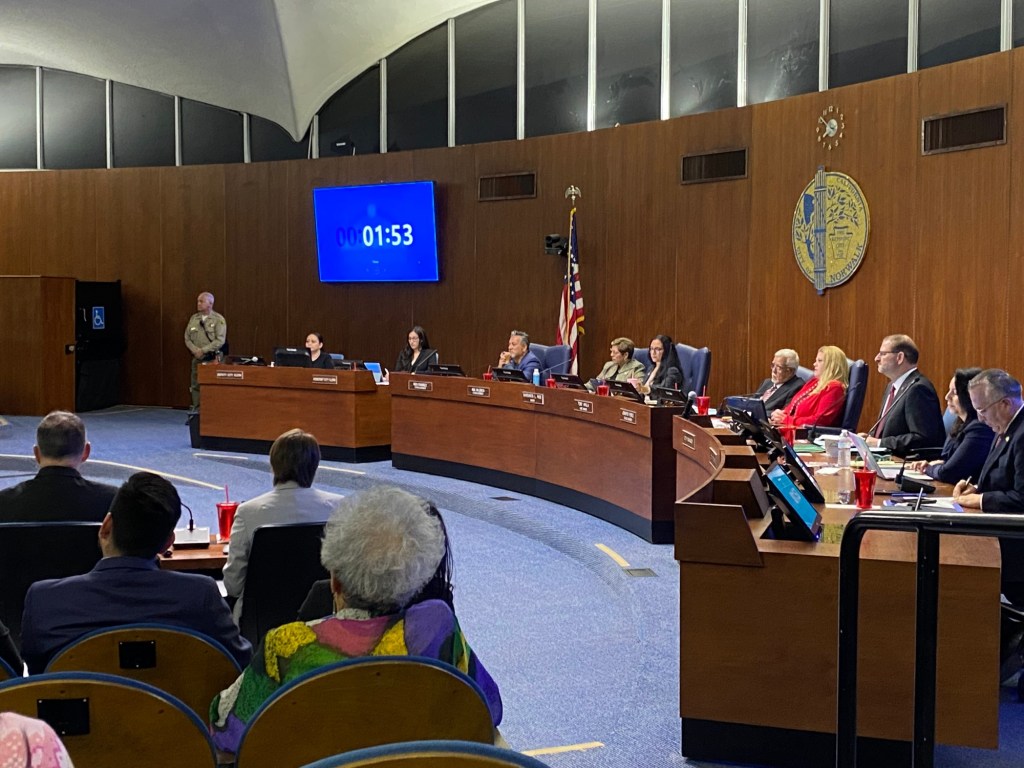
The city of Norwalk is under fire for standing up to California dictating how cities should provide shelter and services for the homeless.
Governor Gavin Newsom and Attorney General Rob Bonta have framed Norwalk’s resistance as a “cruel” and “unlawful” effort to turn its back on those in need.
But that’s nonsense.
State leaders sued Norwalk when the city extended a sweeping ban on homeless shelters, supportive housing and businesses that tend to be seen as catering to lower-income residents, like liquor stores, laundromats and payday loan shops.
Norwalk seems concerned over statewide policies that undermine local control and conditions and the associated costs. Norwalk in a statement said it was seeking “common ground” with the state.
The ban followed a county effort to resettle dozens of homeless people to a local hotel, according to Calmatters. The city argued it was responding to a similar effort from the pandemic era where the county left homeless residents without the appropriate support, which ultimately turned many back to the streets.
Norwalk’s firsthand experience found that shelters, which are supposed to provide a pathway to stability, were largely a revolving door that led people right back onto the streets. In pushing Norwalk to overturn its moratorium, that state is perpetuating an underwhelming (at best) response to homelessness that is undermined by on-the-ground experience.
Since 2018, California has spent roughly $1 billion on shelters, yet that has not moved the vast majority of residents into permanent housing, according to Calmatters. More than 2,000 people have died in shelters between 2018 and 2024. Conditions in many shelters are abysmal, with reports of black mold, bedbugs, domestic violence, and even sex crimes.
Only 10% of shelter residents find stable housing—a number that has declined in recent years. And the sometimes abhorrent conditions and lack of adequate care often drives individuals to abandon shelters and return to the familiarity of the streets.
Norwalk’s experience with Project Roomkey, Newsom’s signature homeless initiative that aimed to provide temporary shelter in motels during the pandemic, was a wake-up call. The city saw high rates of program abandonment, increased calls for public safety, and rising burdens on local social services—all without the necessary additional resources from the state or county, City Manager Jesus M. Gomez told residents in December.
Now, the county wants to place a “Pathway Home” shelter in Norwalk while simultaneously expanding a program at Metropolitan State Hospital that would convert several buildings to house more than 200 homeless individuals with mental health issues. These projects would further strain city finances. Instead, Norwalk is a focusing on other programs to assist homeless residents.
As much as it would like to appear righteous in its legal fight with Norwalk, the state is in no position to judge. It failed to track the spending and effectiveness of its homeless programs, pouring billions of dollars into various programs, only for homelessness to increase.
Having observed the effect of unfunded or underfunded state mandates for many years now, I am sympathetic to Norwalk’s case. It doesn’t make sense to burn money you don’t have on programs that have not proven effective.
What I don’t understand, however, is the connection to banning new permits for liquor stores, laundromats, etc. In doing so, Norwalk appears to be undercutting its own message. I reached out to the city about this because maybe I’m missing something, and a spokesperson told me they don’t comment on pending litigation (even though the question is about the city’s policies, not the lawsuit). It’s not good optics.
California is a big state and its policies are too often determined by big city progressives and their sympathizers who can’t wrap their heads around two things: 1) Big city solutions don’t necessarily work in smaller cities, suburbs or rural areas and 2) The big city solutions aren’t really working in the big cities either.
More local governments should push back.
Matt Fleming is an opinion columnist for the Southern California News Group. You can find him on X, @FlemingWords
Originally Published:



